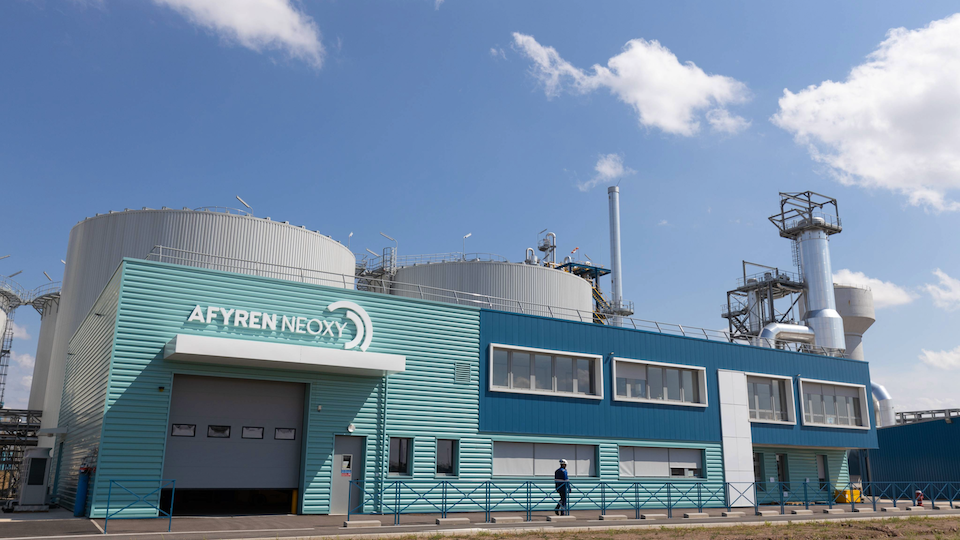
French Afyren starts production of bio-acids – CEO in interview
AFYREN’s first biorefinery, AFYREN NEOXY, has reached continuous production, marking a key step toward large-scale commercialisation of its bio-based acids. The plant will now ramp up output and fulfill long-term contracts across key sectors like nutrition, cosmetics, and life sciences. European Biotech News talked to CEO Nicolas Sordet about the long and winding road to sucess.
AFYREN, a French greentech company focused on sustainable, bio-based industrial solutions, has achieved a major milestone with the successful launch of continuous production at its first biorefinery, AFYREN NEOXY. Located in Carling-Saint-Avold, France, just 2 km south to the border of Germany/Saarland in the so-called plate-form Total de Carling (a base of petrochemical industry), the facility now regularly produces and ships bio-based acids derived from biomass fermentation, signaling the start of full industrial ramp-up.
This development follows two years of intensive work by Afyren and Afyren Neoxy teams to scale up the company’s proprietary fermentation process, which transforms agricultural by-products into seven high-value organic acids. The process is circular, producing no waste, and offers a significantly lower carbon footprint compared to traditional petrochemical alternatives.
In recent weeks, the plant has produced hundreds of tons of material, now undergoing final qualification before being delivered to customers under multi-year contracts. These agreements span a wide range of industries, including food and animal nutrition, cosmetics, pharmaceuticals, materials science, and lubricants. To date, Afyren has secured more than €165 million in revenue commitments tied to these contracts.
Afyren’s CEO, Nicolas Sordet, called the move to continuous production “a major success” and praised his team’s perseverance through the demanding early phase of industrialisation. At full capacity, the plant is expected to produce 16,000 tons of bio-based acids annually, generating approximately €35 million in revenue with a 25% EBITDA margin. In the shorter term, 2025 production revenues are forecast in the low single-digit million euro range, with the plant expected to achieve positive EBITDA within the next few quarters.
Looking ahead, the company remains committed to its broader strategy of expanding to three production sites. While the original timeline called for two fully operational plants by 2028, Afyren is now considering a phased development approach, allowing it to consolidate the lessons and capabilities gained at NEOXY before progressing with new facilities.
In the medium term, Afyren continues to target a combined €150 million in revenue from its planned sites, with a group-level EBITDA margin of around 30%. The achievment has been reached with much support from different sides. This will be explained in more detail in the following interview with CEO Nicolas Sordet. An important role played the project AfterBiochem, which was funded by the joint undertaking Circular Bio-based Europe and industrial partners in Germany, France and Belgium. The partner Südzucker (Germany) was so impressed that a prolongation of the collaboration was just announced – after the end of being publicly funded.
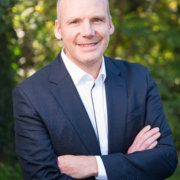
The pharma model is missing! Our bioeconomy ecosystem is not yet organized like in the pharma innovation space.
Background Interview
European Biotechnology News spoke with Nicolas Sordet, CEO of AFYREN SA in Clermont-Ferrand/Lyon. He has worked for over a decade building up a production plant for biobased chemicals from non-food biomass. His mantra is: to be competitive from the start. AFYREN´s plant is up and running, and industry cooperations are now the proof of a new business model.
EuroBiotech: Mr. Sordet, you co-started AFYREN more than a decade ago. Can you review those early days?
Nicolas Sordet: Before AFYREN, I worked in finance. Had I known more about the biotech industry at the time, I might have been more apprehensive, but that is another story. I was in global finance, including in Hong-Kong, before returning to France and considering what to do next. The two scientists behind the project approached me about a Greentech project focused on sustainable hydrogen. But this idea didn’t seem competitive, so we soon switched to producing chemicals from secondary feedstock. I was 100% enthusiastic – despite not knowing much about the industry – because I wanted to do something concrete and purposeful.
EuroBiotech: What were you aiming at?
Sordet: I accepted the challenge in 2012/13. We wanted to use agricultural waste, not for biogas like many others, but to extract chemical substances typically produced by large chemistry companies like DuPont and others from fossil sources, in the most unsustainable ways imaginable. We aimed to use fermentation to develop new biobased acids, a market worth around US$50bn globally.
EuroBiotech: As your background is financing, what was your perspective on this endeavor?
Sordet: We wanted to do things differently – sustainably – but it was clear we could only attract new partners by offering competitive costs. We use a biomimetic approach without genetic engineering, employing a mix of microbes that produce various biobased acids from renewable feedstocks. We’re not dependent on a single feedstock or single microbes as producers. By maximizing resource utilization, we also reduce the cost of goods.
EuroBiotech: Can you elaborate on your technological approach a bit?
Sordet: We use agricultural byproducts – what some might call “waste” – but we never use direct food biomass. Then we apply natural fermentation. The key lies in our innovative process and our high flexibility to respond to market demand. We’re not restricted to a specific field or industry. Like most, we began at lab scale, then moved to pilot and demonstrator scale, and now we have built our own plant near the German border. We’re currently active in several product lines and have contracts of about €165m in place.
EuroBiotech: Is your business model licensing or producing in your own plant(s)?
Sordet: We want to build and operate the plant ourselves. In my view, licensing technology does not work for industrial biotech start-ups. Of course, scaling up is a major step for a new player in the industry and requires significant capital. That´s why many prefer licensing. But there aren’t many success stories from start-ups that go this route.
EuroBiotech: Why is that?
Sordet: We’ve always believed in keeping the technology in-house and having our own fully functioning plant. The value lies in what we do and how we do it. The real proof of your model is when there is already interest in your production scheme before the plant is even built. You must show that your product is competitive – or superior – to current industrial processes in the fossil-based chemical industry. And you need full confidence that large-scale production won’t be a bottleneck. That’s the cherry on top, and there is no way around it.
EuroBiotech: Your international project After-Biochem with the German company Südzucker and others is in itself sustainable. On project completion, your cooperation was prolonged. How did this work?
Sordet: This is a good example of our industrialization approach. We aimed to be a sustainable company, so we had to set up the biobased projects in our own hands to prove success. Our commercial partners supported us in this challenge. Even though some aspects took longer, all partners took the circularity and low-carbon goals very seriously.
EuroBiotech: The times are still difficult for non-fossil biobased production; the environment changes a lot in different countries around the globe. Money is the limiting factor. How do you see the environment?
Sordet: It´s a real challenge, no doubt. For example, when the US pulled funding from such projects, many start-ups collapsed. It is similar in Europe, there’s always a risk that projects are running out of money before companies can complete development or partner at industrial scale. But we must stay committed to making industry more sustainable. The low carbon approach is not about higher profits or premiums, but about transforming the market and offering traditional industry players a path toward sustainability without altering the cost structure. That’s the only convincing argument.
EuroBiotech: But traditional industry tends to stick to its traditional processes. Do you see a shift in the mindset, or is the pendulum swinging back again?
Sordet: It’s like the Kodak story. Legacy companies with strong market positions aren’t happy when new players enter the field. But as the wave grows, you either fall behind or you have to change and move. We have been building Afyren for over 13 years, so we are not that new anymore. We’ve seen and learned a lot on this winding road, and many have witnessed and supported our step-by-step progress.
EuroBiotech: Is the market ready for your products. Is this a push or a pull market?
Sordet: We still compete with the petro-based industry who have optimized their processes for decades and have a wonderful resource in terms of thermo-energy content. Their production runs at very low costs if you exclude the environmental damage. You need to be competitive, otherwise it’s just academic. The biotech industry is capital intensive, but we are in it for the long term. You can be successful, otherwise I would not be speaking to you. Yes, there is a funding gap, and many companies have had to close down. And we are clearly missing a financing model like pharma. The success rate is low, and unlike pharma, there’s no structured exit model,so fewer investors are willing to engage. Europe is helping via the EIB to support the jump from R+D to pre-industrial scale. But once you reach proof of concept, no major player steps in. You have to bridge this gap alone.
EuroBiotech: Financing is key, but the amount of money needed is huge. Which resources of financing are available?
Sordet: You need a mixture of financing resources. And let’s be honest, building an industrial production plant sits awkwardly between typical investor profiles. For VCs, the investment is too large and the time to return is longer than any fund is running. For private equity, it fits in size, but they want immediate cash flow, which you do not have early on. So you’re stuck in the middle. We were lucky to find Sofinnova Partners as our lead VC, who were eager to develop the bioeconomy industry through a new fund. Then the EU launched the SDGs, and sustainability became an asset class. That created a wave of investor interest, and we seized that moment for our IPO. Just a few months later, that window closed, and in the past 3 years, very little has moved.
EuroBiotech: So you were lucky with a mix of financing. But the stock market is not easy either, your listing is not a shining starlight of a success story so far, why?
Sordet: At the time of our IPO, we needed new financing and nothing else seemed viable. The capital influx allowed us to prepare the installation of our own production plant. We are the only player with a plant up and running. We believe we can grow substantially, as many customers are already lined up for this next industrial phase. Now that we are one of the very early projects in industrial scale, we can offer the biobased ingredients from our fermentation process that the market needs. Those early investments got us where we are today, and now we’re entering a new growth phase.
EuroBiotech: You stand at a tipping point for Afyren?
Sordet: Yes, we are at a turning point. Scaling to industrial level is hard work for a small company. Management must juggle many roles – technological, scientific, and strategic – all while monitoring the broader market and environment. Just think about staffing: we need people who can shoulder high levels of risk. Without an entrepreneurial mindset in your whole team, you cannot make it. Europe is still leading in industrial biotechnology, but the largest plants may be built elsewhere. Our mission is to build and operate where the resources for our fermentation process are, and to turn them into green chemistry products.
EuroBiotech: If you had one free wish, what would it be for the industry sector?
Sordet: The pharma model is missing! Our ecosystem is not yet organized like the innovation space in pharma. Companies are more cautious, and success stories are far too rare. Bioindustry needs the pharma model. If no one closes the loop, we have a problem. If big industry does not invest, start-ups will fail, and their innovation will vanish. Large companies need to engage now to harness the speed and momentum coming from the innovators.
The interview was conducted early in June 2025 with Georg Kääb. The story around the many bio-based projects in Europe with a special focus on the success of Afyren is part of issue 2-25 of European Biotechnology News Magazine, published End of June 25. Comments to the author: g.kaeaeb@biocom.eu


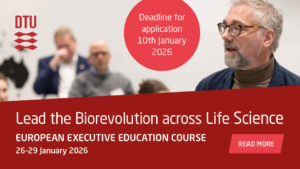
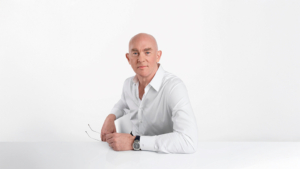 Sofinnova Partners
Sofinnova Partners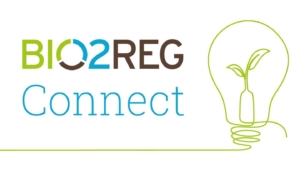 BIOCOM / aminul788 - Adobe Stock
BIOCOM / aminul788 - Adobe Stock